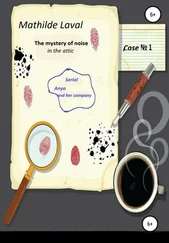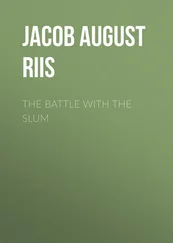“Sister.”
She startled. He was standing directly beneath the heating duct, and she hadn’t heard him go there. He was obviously gaining his bearings and creating a quieter path for himself down there. She didn’t move nor answer.
“We can’t go out again, not now,” Handy said. “Not for some time, maybe. Renna’s feverish and needs mending.” He paused, as though considering his next words. There was a slight lisp in his speech, and his voice was pitched soft, as if not much used. “You know that I’ll have to come up, Arie. Tomorrow.” He seemed so close. She fancied she was feeling the draft of his breath on her face. “Maybe you’ll come down, though. It would be better.”
She strained to hear him say more, but there was nothing, not even the sound of retreating steps. The door of her former bedroom clicked shut, and silence from below. She fetched the short spear and a blanket from her bedroll and settled back onto the couch.
Tomorrow, then.
SHE HAD A WIND-UP CLOCK, one that had seemed an important part of her prep gear in years gone by. It was perched high on the west wall on a cross-member and had been all these years, gathering dust and resting forever at 3:27. It amused her in a weird, reliquary way. How could she have imagined any scenario in which keeping an eye on the hours could matter? Now it was a mute reminder that her sojourn was limited. Tonight, though, she kept glancing up toward the clock, wondering if it was hours or minutes that had passed each time she roused and listened. The weather was done with its howl, and only a few animal voices made any noise outside. After a while those were quiet, too. She wanted to get up and work or walk or trace the mandala, not just lie on the couch, hand resting on the haft of her short spear.
Finally, after what seemed like a fortnight of hours, she got up and opened the sky panel, holding the rope until the weighted counterbalance touched down on the roof without the least sound. Cool damp poured into the attic. It smelled deeply of the ocean; perhaps there had been a storm surge at the beach. Her earlier thoughts about going to the beach returned. How she’d love to walk down to the bay and over the spit to the ocean side. It had been such a long time since she’d seen it. Too long a journey, maybe three miles by foot. She’d reconciled herself to the fact that the ocean wasn’t hers now, except the smell. None of it was hers, out there, and never had been. Whatever came into her hand was a gift, and when she was unable to accept the gifts, her sojourn could end.
She put the ladder out and scanned. No movement below, but a little light in the east, just the least bluing at the horizon she could see through the trees. Up and out she went, stretching until every vertebra crackled. The shingles were wet, and she stepped carefully around puddles to squat over the compost basket for a piss.
The previous night’s rain had filled the water supply to brimming; she cranked shut the overflow valve, opened the lid on top, and put her face right down in the water to drink. It tasted sweet and mildly vegetal, having run off the branches of trees, across a partially moss-covered roof, and through a rain gutter with more than a little organic debris along its length. Everything passed through a simple filter of polyester batting that kept the gross matter out but allowed the invisible green taste through.
Belly full of cool water, she faced east again. The skim of dawn was now brightening, thin yellow showing on the bottoms of the moving clouds. It was a beautiful morning. Ariela McInness, who was now just Arie, lifted her arms toward the oncoming day and chanted the words taken by the Null Folk for a creed, something from some old dead poet.
“Swear, in the pale wine poured from the cups of the queen Of hell, to wake and be free From this nightmare we writhe in, Break out of this foul has-been.”
Her voice was neither loud nor soft. Any human ears could hear her if they were nearby. Perhaps some reprobate would take the words to heart and give her rest, but Arie thought that only the rightful inheritors were listening just now—raccoon, possum, screech owl, mourning dove. Dog, probably, and bear. So she repeated the words. A glorious thing, to wake.
She went back into the attic energized. Her habit was to never have the upper hatch to the roof and the lower hatch into the house open at the same time, so she closed the sky panel. She got herself fully armed, put her back to the Packard bench seat, and shoved it off the inside hatch in three big pushes. She slid the bolt and lifted the board out of its place. It was quiet below—she could almost believe she was alone. But when she looked down, Handy’s face appeared.
“Good morning,” he said. Quiet and formal as any houseguest. Another thing gone with the Pink, she thought: casual visitors.
“Can we get her up?” Arie said.
“Is there another way?”
“None any easier than this.”
“Then we’ll have to,” Handy said. He motioned with two fingers for her to come down.
The first thing she noticed was the changed smell. It was rank. The broken window—Arie had knocked out only one small pane—was stuffed with a hunk of clothing. Nevertheless, Handy had fixed things up a fair bit with items from their grandmother’s room. By tearing down the flowered drapes from in there, he’d managed to make a passable bed. One big panel covered the mattress. The girl was wore Granny’s favorite quilted bathrobe, and the other drapery panel was laid over her like a blanket. She was asleep, mouth open, breathing ragged. Even next to the shiny peach of the bathrobe, her skin had a sallow cast. The marks under her eyes were bruise-dark, and the worst of the smell in the room emanated from her. Arie laid her wrist on the girl’s forehead; it was hot and sticky.
“Any ideas about putting her up above?” Arie said. “It would help if she was conscious.”
Handy stood in the closet, looking up at the open hatch. “That’s fine work,” he said, “hiding the hole this way.” He looked at Arie. “Wouldn’t Daddy Mack be proud of that?”
Arie shook her head. “I doubt it. I only ever knew him to be truly proud of himself.”
“Oh, now,” he said, a mild reproach.
“He’s perhaps changed in his dotage. Is that it, Handy?” She laughed lightly. “A better man now that his worst fear is come upon him?” She moved to one side of the mattress and peeled back the makeshift blanket. “Come on, let’s get her up between us and see what’s possible.”
“It’s her left leg that’s worst,” he said. “It can’t bear weight.”
“You’d best get on her left, then.”
She came to with a wail when Arie pulled her to a sitting position. “Don’t hurt me!” she mewled.
Arie paid no attention, just nodded at Handy, and together they lifted her to semi-standing. She tried to protest again, loudly if incoherently, and Arie slapped her across her face. The yowl ended abruptly.
“I don’t like to do that,” Arie told her, “but you’ll not put us all in danger because you can’t keep quiet.” Her voice was mild, almost pleasant. “Shut it up now, or I’ll strike you again.” The girl stared, shocked eyes welling tears, but she made no more protest. “If we’re to really help,” Arie said, “in just a minute, we’re going to have to hurt you quite a little bit more. It can’t be helped. Do you understand?” The girl nodded. The tears moved slowly through the grime on her face and her nose began to drip. “So,” Arie continued, “what’s your name, child?”
“Renna,” she croaked, voice barely more than a whisper.
“I see. My name is Arie. My life is my own, Renna. And your life is yours. If you don’t want me interfering, you say the word. If you stay on down here like this, you’ll soon be out of it.” She fell back easily on her morning prayer. “Down here, alone, you’ll ‘wake and be free from this nightmare we writhe in, break out of this foul has-been.’ I won’t stand here and tell you that coming up above with me is the better bargain.”
Читать дальше












